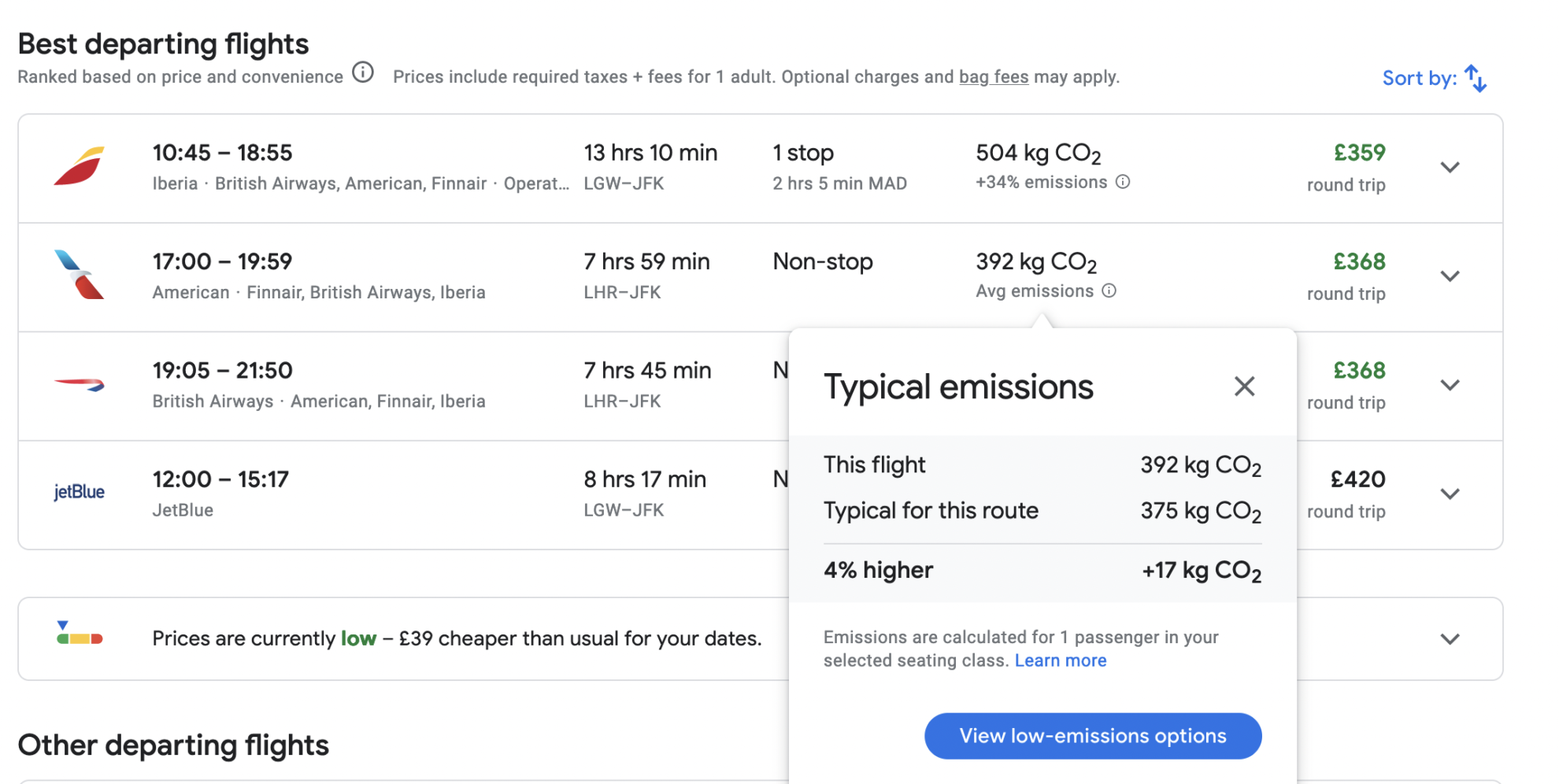Google’s Flight search function has ‘airbrushed’ out a portion of the emissions created by air travel, making travellers’ carbon footprint appear smaller. Jenny Southan reports
According to research conducted by the BBC, the way Google calculates emissions from flying has changed, meaning flights now seem to be less polluting than they were before. Globetrender applies a new term for this – “Carbon Washing”.
Although consumers often search for flights directly on airline websites, Google also has a popular search and comparison portal called Google Flights that allows people to cross reference the options in one place. It also has a built-in carbon calculator to show the emissions created by flights.
However, the world’s biggest search engine has openly modified the way its carbon calculator works, removing all the global warming impacts of flying except CO2. This means a flight from Seattle to Paris, for example, appears to emit 520kg CO2e now, but 1,070kg CO2e before.
Dr Doug Parr, chief scientist of Greenpeace, was quoted by the BBC as saying: “Google has airbrushed a huge chunk of the aviation industry’s climate impacts from its pages.”

So what’s missing? In addition to the CO2 produced by burning fuel, flights create cloud-like contrails in the sky that trap heat, leading to global warming. It’s these secondary factors that have been elimated from the Google Flights calculator. The BBC says: “With Google hosting nine out of every ten online searches, this could have wide repercussions for people’s travel decisions.” It is also widely recognised as the industry standard in aviation.
The BBC says: “With Google hosting nine out of every ten online searches, this could have wide repercussions for people’s travel decisions.” It is also widely recognised as the industry standard in aviation.
In the UK, companies are advised by the government to “reflect the additional impacts of flying by multiplying the CO2 emissions a flight generates by a factor of 1.9 – effectively doubling their impact,” says the BBC.
Of course, this is just an estimate but when it comes to climate change, it’s best to err on the side of caution.
Europe’s leading clean transport campaign group, Transport and Environment, told the BBC: “Current scientific knowledge is sufficient to state that non-CO2 effects represent two thirds of the total climate impact of aviation.
“The industry has hidden this problem for decades… Google should show customers the non-CO2 effects for each flight, as the European Parliament has proposed to do.”
